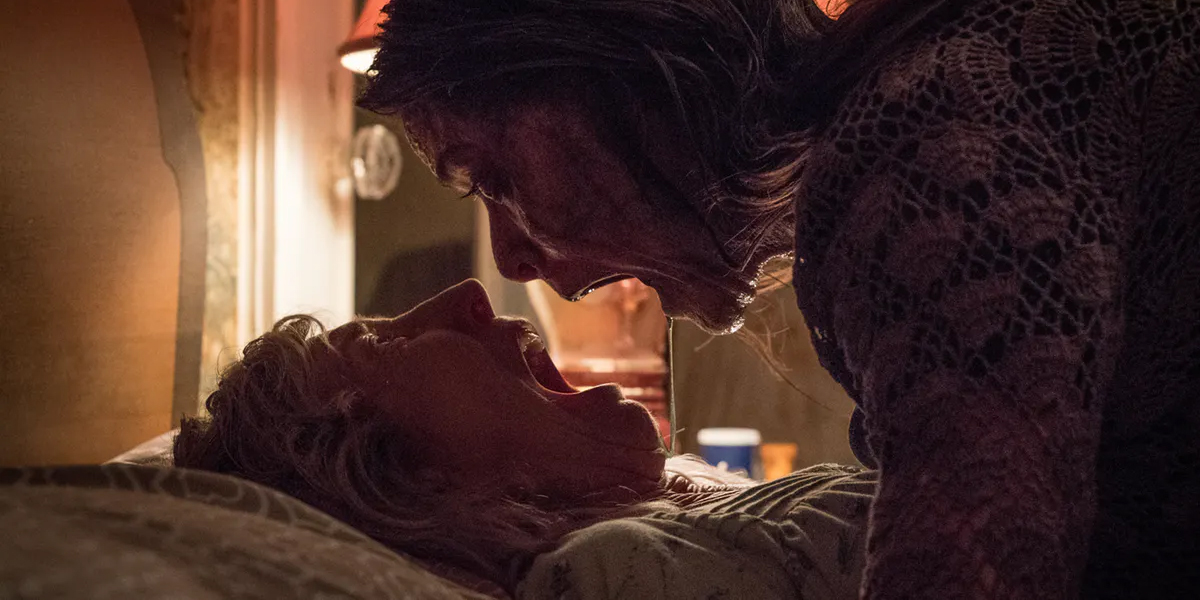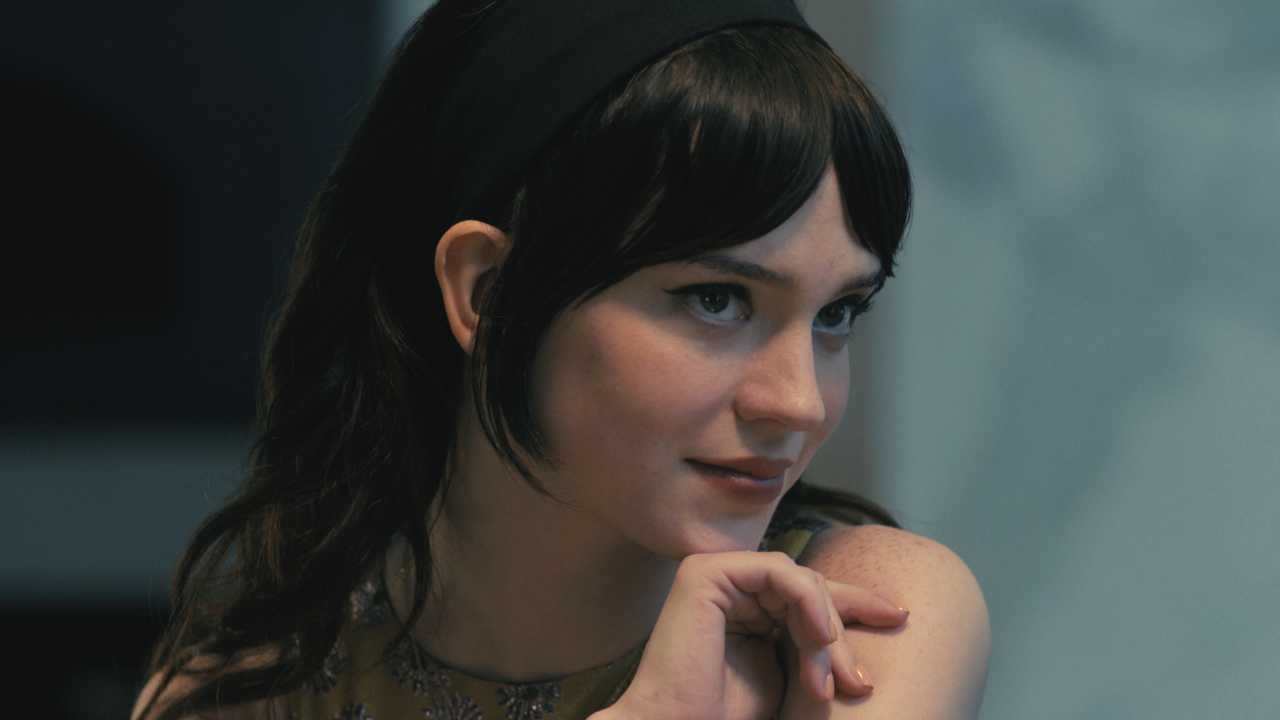Relatively speaking, the Grudge franchise is based on a fairly simple premise. The idea is that if a person dies while experiencing a deep rage, their spirit creates a curse that cannot be broken, and it haunts anyone who steps foot in their residence. This simplicity goes a long way in explaining the longevity of the movies (albeit primarily in Japan), but evidently it wasn’t a part of the memo received by writer/director Nicolas Pesce, who has taken the helm of the latest chapter of the series.
The 2020 version of The Grudge starts off straightforward enough, establishing first how the titular menace found its way from Japan to America in 2004, and then explaining the rules of the franchise via white text on a black background… but then it all quickly falls apart. Though you want to at least kind of appreciate the approach that Pesce tries bringing to the table, the problem is that it all translates as convoluted, as its attempt to create a non-linear structure results in a total mess that completely lacks story and is entirely motivated by cheap jump scares.
After starting in 2004 (a weak attempt at connecting the continuity to the first American remake), the film jumps ahead to 2006 when Detective Muldoon (Andrea Riseborough) moves into the small town of Cross River with her young son Burke (John J. Hansen) following the death of her husband. Partnered with another detective named Goodman (Demián Bichir), Muldoon is brought to a crime scene and begins to learn about a particular address with a disturbing history: 44 Reyburn Drive.
Learning that Goodman won’t even step in the suburban home due to his suspicions of bad juju, Muldoon begins her own investigation into what’s happening, and unravels the history of three families tied to the residence over the last two years. This includes the Landers (Tara Westwood, David Lawrence Brown, and Zoe Fish), who originally brought the curse to the house; the Spencers (John Cho, Betty Gilpin), a pair of expecting parents/real estate brokers working to try and sell the home; and the Mathesons, an older couple that moves in and sees the husband (Frankie Faison) employ the help of an assisted suicide aide (Jackie Weaver) in order to help his ailing wife (Lin Shaye).
As Muldoon digs further and further into the events, The Grudge shuttles between each of the stories, none of them ultimately building to anything substantial, and instead simply wasting the fantastic talent that has been brought together.
The Grudge has four chances to tell a compelling story, and totally whiffs each one.
Given the structure and the real lack of significant links between the stories, The Grudge could have operated almost like a themed anthology feature, with each of the independent narratives being used to explore different aspects of the titular curse, but each one is as basic as the last, never even bothering to try anything special or different. The individual tales do each start out with an interesting nugget – namely Muldoon’s recently-dead husband, the real estate couple learning about prenatal complications, and Mathesons’ plans for assisted suicide – but none of those details actually goes anywhere interesting, and are ultimately made minor and/or are ignored in favor of rote, boring conclusions.
There is no originality in the scares, as The Grudge keeps going back to the same well.
Lack of imagination is almost a theme in The Grudge, as it also extends to the boring and disappointing ways in which the film tries to scare its audience. If nothing in this world frightens you more than a screaming, bloody face popping out of the darkness, then this might actually wind up being your favorite movie ever – but for those who expect more from their horror, it’s an eye roll inducer. Furthermore, each “shock” is undercut by incredibly obvious set-ups that have you counting down until the big moment, and adding insult to injury is the fact that you’ll run out of fingers trying to count the film’s missed opportunities creating atmosphere and chilling movie-goers by slipping something horrifying into the background of a scene.
You honestly question how The Grudge managed to get such a great cast.
Unfortunately, this isn’t a case where talented performers wind up elevating the material either. Instead, it makes you wonder about what alternative projects the stars could have pursued. One can understand the initial attraction to the material given A) the on-going horror boom, B) the brand recognition of The Grudge, and C) the aforementioned interesting story nuggets, but it never takes more than 10 minutes into each arc to realize the rote direction in which things are headed. Coupled with moments and character details that should have had the actors saying, “Wait, this doesn’t make a ton of sense,” nobody walks away from it looking good.
The Grudge is the first wide release of 2020, and while one should never set their expectations too high for horror movies that come out in January, it’s still an ominous start to the year. The good news is that by the time we get to December, most audiences will totally forget having seen it.

Eric Eisenberg is the Assistant Managing Editor at CinemaBlend. After graduating Boston University and earning a bachelor’s degree in journalism, he took a part-time job as a staff writer for CinemaBlend, and after six months was offered the opportunity to move to Los Angeles and take on a newly created West Coast Editor position. Over a decade later, he's continuing to advance his interests and expertise. In addition to conducting filmmaker interviews and contributing to the news and feature content of the site, Eric also oversees the Movie Reviews section, writes the the weekend box office report (published Sundays), and is the site's resident Stephen King expert. He has two King-related columns.











